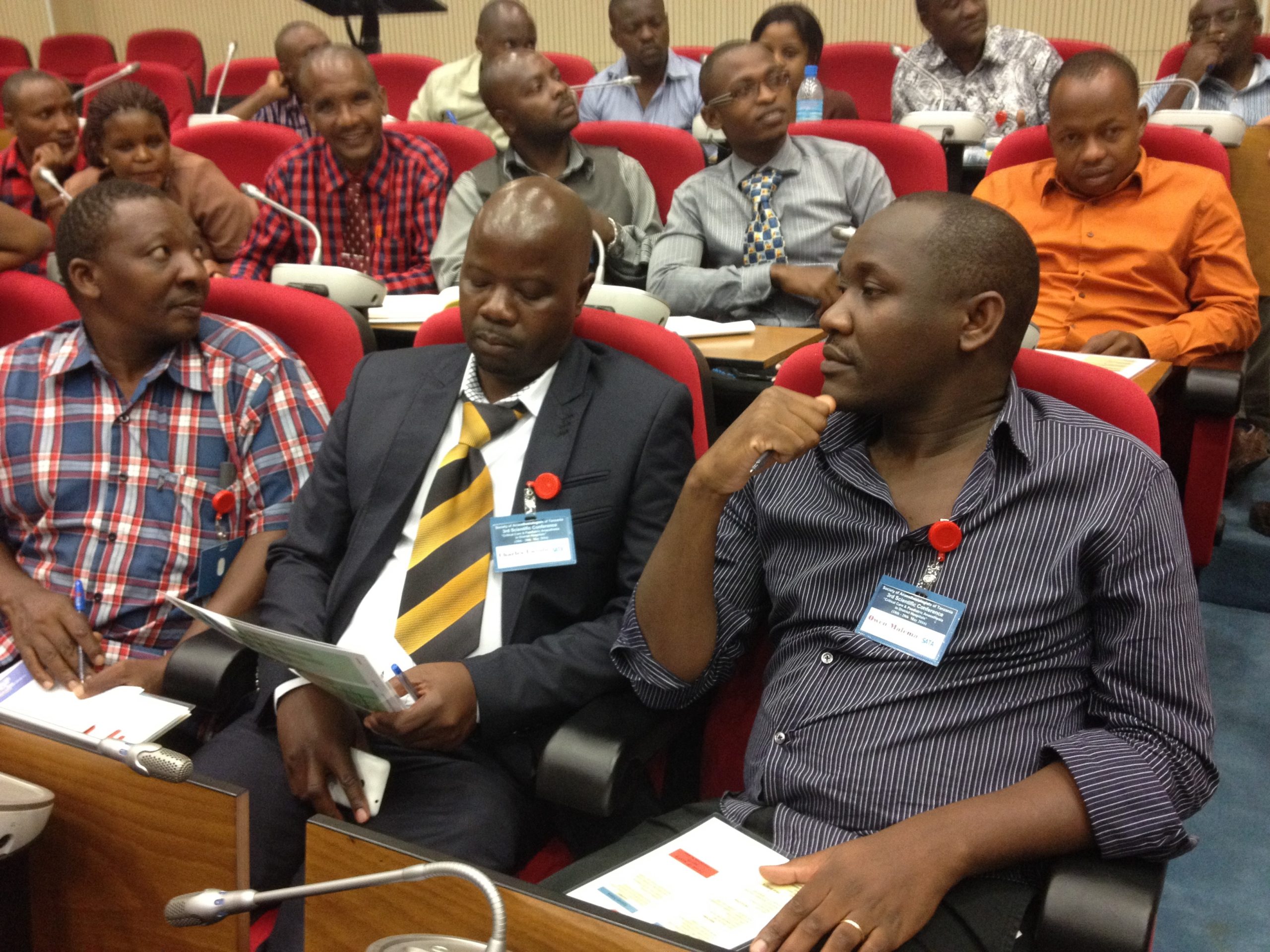The conference for Anaesthesiologists in Tanzania was a real eye opener for the two doctors from Malawi that attended for the first time last week. Malawi has only 3 doctors specialised in Anaesthesia and their journey was sponsored by Life Support Foundation as a step towards developing the specialty in more African countries.
 Last week’s conference for The Society of Anaesthesiologists of Tanzania (SATA) was the first visit to Tanzania for Owen Malema and Charles Unyolo from Blantyre, Malawi. They took back lots of inspiration and information about how to develop their specialty back in their home country, where there is no established Anaesthesia society .
Last week’s conference for The Society of Anaesthesiologists of Tanzania (SATA) was the first visit to Tanzania for Owen Malema and Charles Unyolo from Blantyre, Malawi. They took back lots of inspiration and information about how to develop their specialty back in their home country, where there is no established Anaesthesia society .
– A conference like this is the only way to strengthen anaesthesia, says Charles Onyolo. We have learnt that African countries can optimise the use of the few resources we have to save lives. Anaesthesia should be science based. Our shortfall is that we don’t read much – we are practising old things, not changing. Malawian anaesthesia can learn from SATA – it would be good to form an association.
Comparing the two African countries, the doctors can see many similarities, but also some differences.
– Some places in Tanzania seem to have very advanced anaesthesia, others less so, says Dr Owen Malema. Malawi is more in the middle. We have similar challenges. We need to advocate anaesthesia – Tanzania is doing this very well. The nurses are more empowered in Tanzania – in Malawi they call the doctor before doing anything.
It was the huge challenge that made them choose their profession, in a country where there is just three anaesthesiologists .
– It is an art whose basis is science. If you mess up the patient dies, you get immediate results, says Dr Malema. The science fascinates me. You have a very big impact – you have knowledge to save patients’ lives. Such as all manual manoeuvres. You are needed when all other departments have failed. You are the final physician.
His colleague, Charles Onyolo, agrees:
– I wanted to upgrade myself and it is one of the most challenging professions. You are the pilot or controller. It gives me pride, encouragement and courage. You need to be specific, and you get instant results. There is no guesswork.
When asked if there is anything in particular that stands out from the week, Charles Onyolo replies:
– The VSDT (Vital Signs Directed Therapy) research and good interactive sessions – for example on fluid management and pre-operative fasting. There was also a good lecture about why children die – due to hypoxia. It is very important to label syringes for anaesthesia to avoid mix-ups.
Dr Malema mentions the importance of having personal checklists:
– Sometimes we forget vital things. For example, to check the laryngoscope blade before RSI. And the WHO Checklist.
They both see the need for a similar exchange next year, and hope that 3-4 participants from different districts in Malawi could join the SATA-Conference.
– The Heads of our Departments should also come. We were impressed with the leadership from Dr Mpoki and Dr Boniface in Tanzania.
On the personal level, the days in Dar es Salaam were an eye opener for them both. Besides contributing to their training as doctors, they have gained important contacts with colleagues.
– These days have been a very big motivation for me. It really matters 100 percent, says Charles Onyolo.
Back home in Malawi they will share knowledge from SATA and map the way forward. They will also advocate for having a scientific conference in their home country.
With Your help we can spread the knowledge and save more lives. Read more and contribute here!


